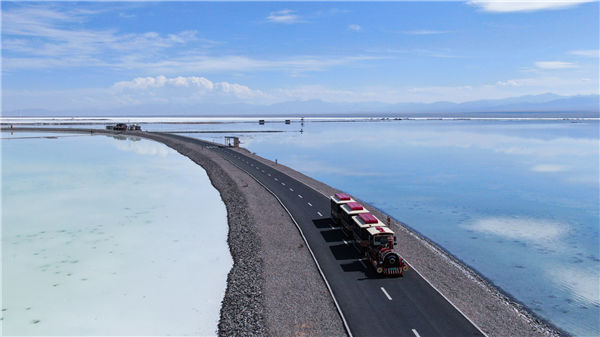As the National Day holiday in October approaches, many tourist attractions in China will continue the free ticket policy to help tourism recover from the COVID-19 epidemic.

Visitors take a sightseeing train ride to explore the charm of Chaka Salt Lake, known as the "Mirror of the Sky", in Ulan county, Haixi Mongol and Tibetan autonomous prefecture, Qinghai province. (Photo: Xinhua)
According to The Paper, some 500 A-level tourist attractions have offered free tickets, including 400 tourist spots in Hubei Province, 32 in Xinjiang Uygur Autonomous Region, 12 in Shandong Province, 7 in Shanxi Province and 31 in Gansu Province.
Specifically, the free ticket policy in Northwest China's Xinjiang Uygur Autonomous Region will run from September 6 to November 10. The Altay Prefecture in Xinjiang has 32 A-level tourist attractions, including Kanasi Lake, Keketuohai Geopark and Five Colored Hills.
Earlier in August, Central China's Hubei Province, the previous epicenter of COVID-19, rolled out a free ticket policy for some 400 A-level tourist attractions. The policy will run until the end of the year, covering the National Day holiday.
Starting August 1, Central China's Xi'an, Shaanxi Province, has also been offering free access to National 5A tourist spots, including Tang Paradise, Louguantai Temple, 80% of national museums and all private museums.
Apart from free tickets, many scenic spots in China also offer attractive discounts.
In East China's Shandong Province, 81 national tourist attractions have been offering 50% to 80% discounts since July 24. The ticket offices have seen a 130% increase during the last week of July, according to Qunar.com, an online travel service platform in China.
In addition, Southwest China's Guizhou Province and Yunnan Province have launched half-priced tickets for some scenic spots. Suzhou City in East China's Jiangsu Province has held promotions of "1-yuan trips for classical gardens".
(Compiled by Wang Qin)


